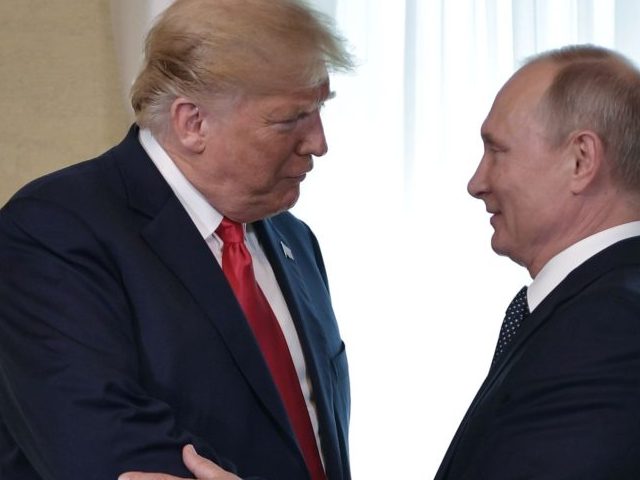By Zachary B. Wolf
Since 1999, as either the full or putative leader of his country, Russian President Vladimir Putin has watched US presidents come and go.
He may have considered the impermanence of Americans leaders during a two-hour talk with current US President Joe Biden Tuesday as he heard a stern warning to not further invade Ukraine.
Chinese President Xi Jinping has been in power since 2013, through multiple US presidents, and he’s been set up to rule China for life. He carried that knowledge into a virtual summit with Biden last month and now as the US threatens a diplomatic boycott of the 2022 Winter Olympics Beijing is set to host.
Zoom diplomacy. Note: High-stakes diplomatic stare downs take place the same way everything else does in the pandemic era, essentially over Zoom — although who knows what secure video system world leaders use.
The White House released a photograph of Biden looking at Putin’s image on a video screen. A similar photo came from the US President’s call with Xi in November.
Biden has framed his presidency as an effort to reassert democracies against autocracies, and this week’s attempt to stand in the way of Russian aggression toward Ukraine proved the point.
He warned Putin to back down from a military buildup threatening Ukraine that has caused alarm in Europe and the US.
It’s not clear if Putin is serious about his dream of reconstituting the Soviet Union by inching farther into Ukraine than he did in 2014.
Now, the Western world is again on alert, and Biden made clear to Putin there would be consequences this time that are more costly than the sanctions and condemnation Russia faced when it seized Crimea and Russian-backed separatists took control of the Donbas region.
The separatists have been warring, with Russia’s help, against Ukraine ever since.
“Things we did not do in 2014, we are prepared to do now,” Biden’s national security adviser Jake Sullivan told reporters after the virtual call.
Biden, by the way, was intimately involved in the US response to Russia in 2014 when he was vice president.
How is the Russian buildup different today? It appears to include supply lines to sustain a drawn-out conflict and up to 175,000 troops along the border, according to sources briefed on US intelligence.
Biden and other countries have issued loud support for Ukraine’s sovereignty and promised there would be swift penalties for Russia if it invades.
They have not ruled out US military involvement, and Sullivan said the US would be cycling more military supplies and potentially US service members through nearby NATO countries.
Putin has his own “alternative facts,” according to CNN’s Matthew Chance, who is covering the story from Odessa, Ukraine.
Chance told CNN’s Jake Tapper about the Kremlin’s version of the call, in which Putin “made it clear he did not feel that Russia was responsible for any escalation in Ukraine. He blamed that escalation on NATO.”
What does Putin want? One main aim is to make sure Ukraine never joins NATO, an alliance that was initially formed during the Cold War to provide a counterweight to the now-defunct Soviet Union.
In a nutshell, then, what Putin is aiming to stop is the advancement of Western-style democracies with militaries.
Pushing democracy. This week, the US State Department is hosting a different virtual meeting, a “Summit for Democracy,” although the Washington Post notes several of the invitees, like Pakistan, could use a refresher.
It may seem unbelievable, but the Chinese government has argued that its system is a preferable form of democracy in a new paper issued by Beijing this month. It argued against US-style democracy, money in politics and the two-party system. It didn’t mention the clampdown on dissent or autocracy in its own model, which doesn’t allow citizens direct input in choosing their top leaders.
It is human rights abuses in China’s western region of Xinjiang that led the US to consider the diplomatic boycott of the Olympics — which is itself a half-measure since American athletes would still compete in the games.
The importance of natural gas in Europe. One major complication in Biden’s effort to push democracy is that democratic economies are so interwoven with the autocratic ones.
Russia has leverage over Europe since it supplies natural gas, and the US has fought against the Nord Stream 2 pipeline, which would carry natural gas from Russia straight to Germany without going through Ukraine.
Germany slowed approval of the pipeline in November. Reuters reported Tuesday that US officials have told members of Congress Germany would shut down the pipeline completely if Russia invades Ukraine.
The global economic importance of China is even more pronounced.
CNN’s Luke McGee writes Tuesday about a reevaluation in Europe of its economic ties to China.
Biden’s summit with Xi in November was actually seen as something of a thawing of relations after the Donald Trump era…



Connect with us on our socials: